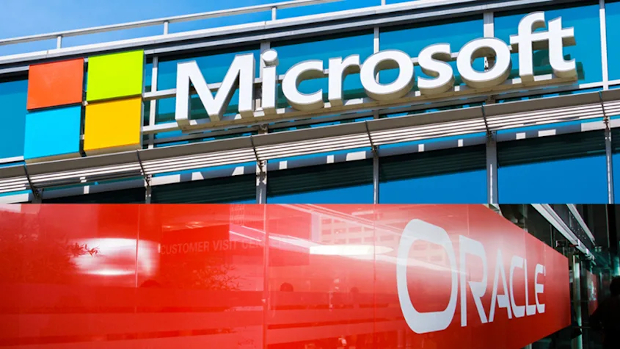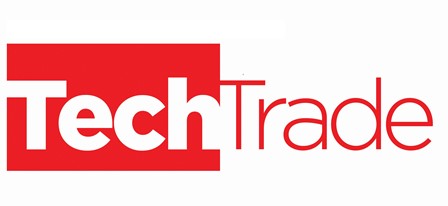
Microsoft and Oracle slammed over ‘anti-competitive’ software practices
A leading expert on competition law has published a report illustrating the “unfair” and “anti-competitive” licensing practices enforced by major tech firms on customers globally.
Microsoft and Oracle are the primary targets of the report, which details the alleged long-running anti-competitive practices used by major firms in the software and cloud services industries.
Professor Frederic Jenny’s research on cloud infrastructure service providers in Europe (CISPE) has been distributed to MEPs, the European Commission (EC) and the European Council as they debate and vote on the Digital Markets Act (DMA).
“Our research has shown that the position of certain large cloud infrastructure providers in the adjacent markets, notably Microsoft and Oracle, has enabled them to engage in potentially anti-competitive strategies to exclude other cloud infrastructure providers from the market,” the report authored by Jenny reads. “Moreover, these strategies have been an engine of growth for those integrated cloud service providers.”
The DMA is a legislative proposal brought forward by the EC to stamp out unfair and anti-competitive practices exhibited by digital platforms, typically those with dominant market positions looking to increase their share in adjacent markets.
It has been proposed following the recent high-profile US antitrust cases brought to the likes of Facebook and Google, but Jenny’s report takes aim at two other tech giants in particular.
Among other industry-wide unfair practices, the report accused Microsoft of enforcing unfair licensing costs and charging customers more to use Office and Server software on third party cloud platforms, citing the case brought to Microsoft by the Danish Cloud Community and the European Commission in 2018. In this case, Microsoft raised the price for software subscriptions but left them untouched for customers using said software within its own cloud environments, Azure and Windows 365.
The report also accused Oracle of enforcing licensing restrictions which lead to a 10x increase in price when using Oracle software in a third party cloud platform compared to running it on Oracle Infrastructure as a Service (IaaS). Oracle has also been criticised for enforcing technical and billing requirements on a per-CPU basis.
“If Oracle software is used in Oracle IaaS then companies are only require to pay for the number of actual CPUs used while it used on third-part IaaS equipment, the company is required to pay for a licence for each CPU that could be used to run the software, whether or not it actually is,” the report said.
The researcher also conducted a series of interviews with cloud customers to gather further evidence against the unfair practices in the sector. These revealed additional practices such as limits to interoperability involving technical limitations such as enforcing proprietary languages to make migration more difficult, and switching costs which may be significant both in monetary and time-duration terms, the report notes.
Exclusionary licensing practices were also highlighted in the report with one case study reporting that Microsoft imposed an ‘after-the-fact’ change to its licensing policy after the customer decided to switch to Amazon Web Services (AWS). This saw the customer forced to pay for individual Office licenses on each computing instance, raising the annual cost tens of millions.
These examples of exclusionary licensing can also be found in third party interfacing – accessing a service through a third party application. SAP’s Indirect Access was cited as an example of this, whereby users incurred additional surcharges for accessing the SAP ecosystem through a third party application, effectively creating an active log of ‘indirect usages of SAP software.
Other notable unfair practices include: artificially limiting data portability to make it expensive if not impossible to use competing cloud infrastructure and the removal of Bring Your Own Licence (BYOL) deals whereby customers are forced to pay again to use software they already own on competing cloud infrastructure.
“This independent study by Prof Jenny, a recognised economist, objectifies the observations made consistently by Cigref members over many years,” said Henri d’Agrain, Secretary General of Cigref, the French CIO Association.
“It provides a factual assessment of the economic consequences of the unfair practices that Cigref regularly denounces. It is important to regulate these practices, which are mainly carried out by non-European providers. These practices constitute an illegitimate drain on the European economy and contribute to stifling the digital innovation of European players through killing acquisitions.”
Alban Schmutz, Chairman of CISPE, concluded: “We’d heard from our members, and from their customers, that certain legacy software providers were limiting choice in cloud infrastructure through unfair license terms. We commissioned Professor Jenny to make a study of these practices and their impact, to support the Principle of Fair Software Licensing we crafted with Cigref. The Study clearly demonstrates the need for the Principles, and for the DMA to include them within its provisions. This is a significant issue which requires legislation as well as voluntary adoption of our Principles to ensure compliance and a better deal for European businesses and consumers.”
Ⓒ Future Publishing
Like what you see?

Ireland’s ONLY dedicated news feed for the distribution and retail channel.
Our editorial mix includes channel news, trend analysis, Deals Done, regular ‘Channel Chat’ interviews and strategic product focuses. This is a vital medium through which the technology channel can network and identify new business opportunities.
Want more?






Subscribers 0
Fans 0
Followers 0
Followers